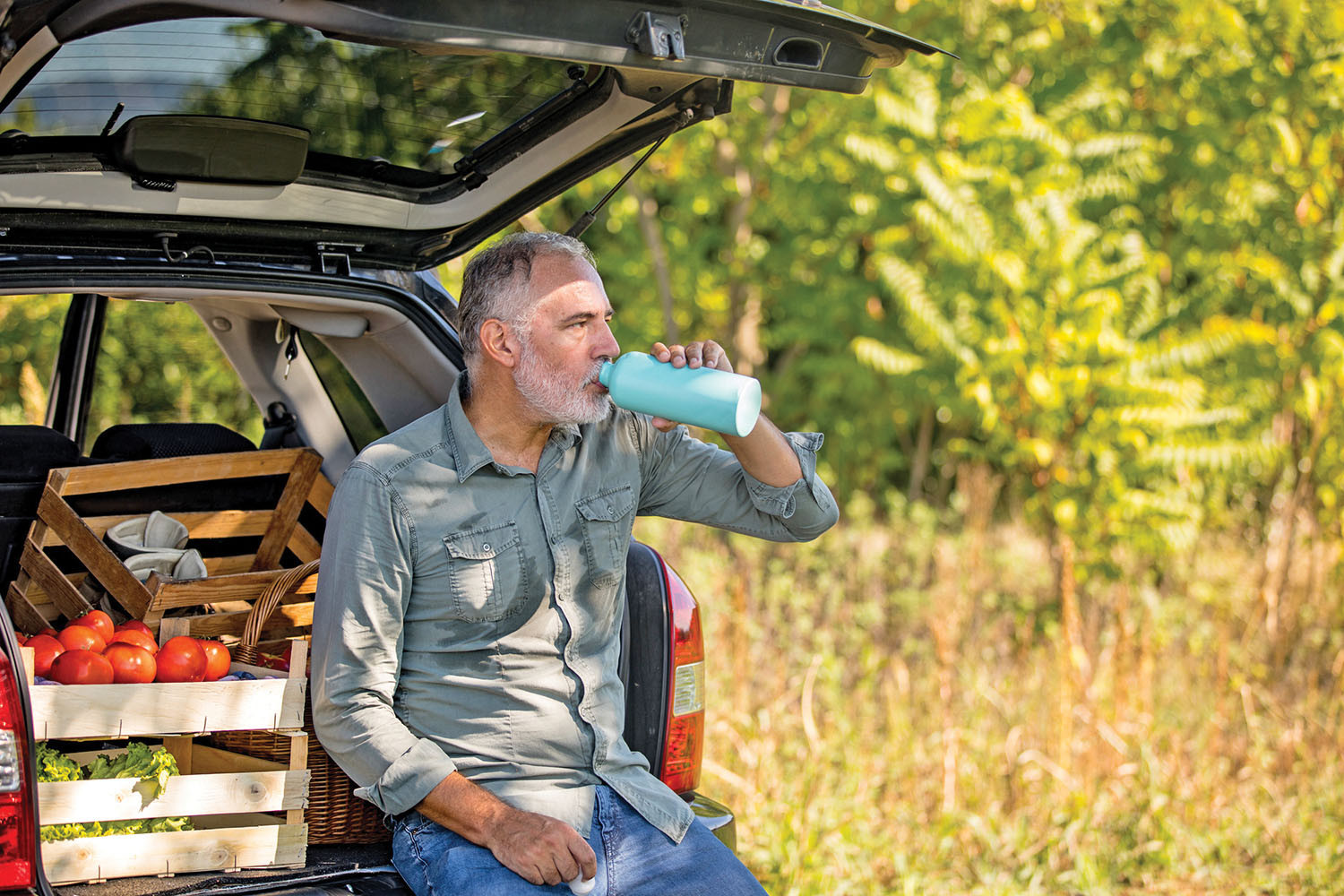NIH tips help reduce risk of hyperthermia.
As we age, our ability to adequately respond to summer heat can become a serious problem. Older people are at significant increased risk of heat-related illnesses, known collectively as hyperthermia, during the summer months. Hyperthermia can include heat stroke, heat edema (swelling in your ankles and feet when you get hot), heat syncope (sudden dizziness after exercising in the heat), heat cramps, and heat exhaustion.
Experts at the National Institute on Aging, part of the National Institutes of Health, say knowing which health-related factors may increase risk could save a life. Those factors include:
- Age-related changes to the skin such as poor blood circulation and inefficient sweat glands
- Heart, lung, and kidney diseases, as well as any illness that causes general weakness or fever
- High blood pressure or other conditions that require changes in diet, such as salt-restricted diets
- Reduced sweating, caused by medications such as diuretics, sedatives, tranquilizers, and certain heart and blood pressure drugs
- Taking several drugs for various conditions (It is important, however, to continue to take prescribed medication and discuss possible problems with a physician.)
- Being substantially overweight or underweight
- Drinking alcoholic beverages
- Being dehydrated
Lifestyle factors can also increase risk, including extremely hot living quarters, lack of transportation, overdressing, visiting overcrowded places, and not understanding how to respond to weather conditions.
Older people, particularly those at special risk, should stay indoors on particularly hot and humid days, especially when there is an air pollution alert in effect. To stay cool, drink plenty of fluids and wear light-colored, loose-fitting clothes in natural fabrics. People without fans or air conditioners should keep their homes as cool as possible or go someplace cool. Senior centers, religious groups, and social service organizations in many communities provide cooling centers when the temperatures rise. Or visit public air-conditioned places such as shopping malls, movie theaters, or libraries.
Heat stroke is a severe form of hyperthermia that occurs when the body is overwhelmed by heat and unable to control its temperature. Someone with a body temperature above 104 degrees Fahrenheit is likely suffering from heat stroke. Symptoms include fainting; a change in behavior (confusion, combativeness, staggering, possible delirium or coma); dry, flushed skin and a strong, rapid pulse; and lack of sweating. Seek immediate medical attention for a person with any of these symptoms, especially an older adult.
If you suspect that someone is suffering from a heat-related illness:
- Call 911 if you suspect heat stroke.
- Get the person out of the heat and into a shady, air-conditioned or other cool place. Urge them to lie down.
- If the person can swallow safely, offer fluids such as water and fruit or vegetable juices, but not alcohol or caffeine.
- Apply a cold, wet cloth to the wrists, neck, armpits, and groin. These are places where blood passes close to the surface of the skin, and a cold cloth can help cool the blood.
- Encourage the person to shower, bathe, or sponge off with cool water if it is safe to do so.
If you are having a hard time paying for home cooling and heating costs, there are some resources that might help. Contact the National Energy Assistance Referral service, your local Area Agency on Aging, senior center, or social service agency.
About the National Institutes of Health (NIH): NIH, the nation’s medical research agency, includes 27 Institutes and Centers and is a component of the U.S. Department of Health and Human Services. NIH is the primary federal agency conducting and supporting basic, clinical, and translational medical research, and is investigating the causes, treatments, and cures for both common and rare diseases.
Original Article – https://www.nih.gov/news-events/news-releases/heat-related-health-dangers-older-adults-soar-during-summer





